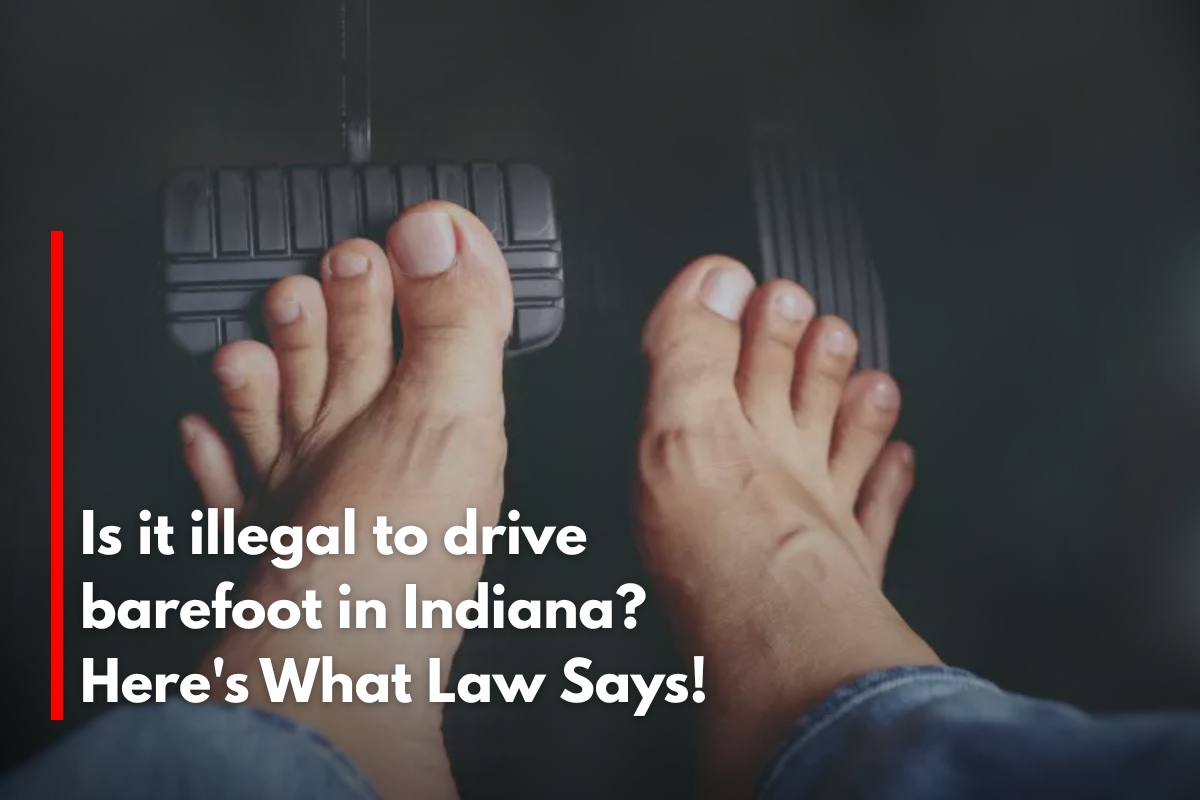For many motorists, the question of whether it’s legal to drive barefoot often arises, especially during warmer months when it’s tempting to kick off your shoes and hit the road. In Indiana, and across much of the United States, myths about barefoot driving abound. Let’s set the record straight by reviewing exactly what the law says in Indiana, safety considerations, and what drivers should know before driving shoeless.
What Does Indiana Law Say?
The short, clear answer: It is not illegal to drive barefoot in Indiana. There is no state statute that prohibits residents from operating a motor vehicle without shoes. This means you can legally choose to drive without footwear.
However, Indiana—along with several other states—does not endorse barefoot driving from a safety standpoint. State authorities and driving instructors often caution against it, citing concerns about reduced control and a higher risk of pedal slippage.
Origins of the Barefoot Driving Myth
The origin of the myth that barefoot driving is illegal often traces back to driver’s education classes or word of mouth, with teachers or well-meaning family members warning teens that it’s against the law. In reality, neither Indiana nor any other U.S. state (for cars) specifically criminalizes driving barefoot. The idea persists due to longstanding safety concerns and the misconception that footwear is required by law.
Is Barefoot Driving Safe?
Legality and safety are not always aligned. While you can legally drive barefoot in Indiana, law enforcement and safety experts generally don’t recommend it. Here’s why:
Reduced Pedal Control: Without shoes, your feet may not grip the pedals as effectively, especially if they are wet or sweaty. This can increase the risk of your foot slipping off the brake or accelerator.
Increased Risk in an Accident: If you’re involved in a car accident and law enforcement determines that being barefoot contributed to the crash—or impaired your ability to control the vehicle—you could potentially be cited for reckless or negligent driving.
Potential for Injury: Without protection, your feet are vulnerable to cuts, burns, or other injuries if you are in a crash or if you need to exit the vehicle in an emergency.
What About Insurance and Liability?
Driving barefoot is not illegal, but if being shoeless contributed to unsafe driving or an accident, insurance companies or police may view it as a factor in determining fault or negligence. In such cases, you could be found partially liable for damages, and your insurance rates could be affected.
Key Takeaways for Indiana Drivers
Legal: You can drive barefoot in Indiana without fear of violating any state law.
Discouraged by Authorities: The practice is discouraged due to safety risks but not expressly prohibited.
Liability Concerns: If barefoot driving impairs your control of the vehicle and leads to an accident, it could play a role in determining fault or liability.
Better Than Flip-Flops: Some safety experts argue that barefoot driving is actually safer than wearing flip-flops or loose shoes, which are more likely to get tangled under pedals.
Driving barefoot in Indiana is legal, but not without risks. If you choose to drive without shoes, be mindful of your ability to control the vehicle safely at all times. Ultimately, the safest option is to wear comfortable, secure footwear designed for driving. Legal freedom does not always equal practical safety—drive smart, and prioritize control over comfort for your safety and that of others on the road.
Sources
[1] https://www.protectyourrights.com/legal-to-drive-barefoot-in-indiana/
[2] https://www.superlawyers.com/resources/traffic-violations/driving-barefoot-is-it-legal/
[3] https://www.autoinsurance.com/faqs/illegal-to-drive-barefoot/
[4] https://www.findlaw.com/legalblogs/law-and-life/illegal-to-drive-barefoot/
[5] https://www.directauto.com/learning-center/driving-laws-and-safety/is-it-illegal-to-drive-barefoot











